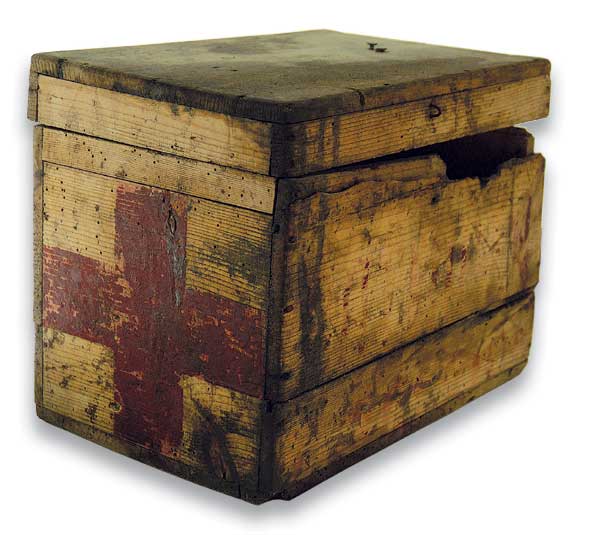The denial of nutrition and hydration to patients also has an effect upon medicalpersonnel, especially physicians. A survey of Catholic physicians by one of thispaper’s authors (CK) has shown that the denial of nutrition and hydration toelderly patients, especially dementia and stroke patients is widespread even inCatholic hospitals/facilities. A typical example would be an elderly gentlemanwith a history of remote stroke with mild dementia who presents to the hospitalwith severe dehydration and hypernatremia. After a short period in the hospitalhis daughter tells the physician that she wants “comfort care only.” The physiciangently explains that the patient is dehydrated and warrants hydration withintravenous fluids, which is not considered extraordinary. The family insists thathospice be called in and pressure is put on the physician to use comfort measuresonly and call in the palliative care/hospice team.
Often family members in this position are well intentioned, however the physicianinvolved in these cases is placed is placed in a precarious position. If he or sheconsults hospice or the palliative care team, the patient may soon be started ona morphine drip and in most cases the fluids are stopped. If he or she does notconsult palliative care/hospice, the physician usually will experience tremendouspressure from family, nursing staff and administration to “honor the family’swishes.”
In 2009, the Unites States Bishops outlined the Church’s position in paragraph 57of the Ethical and Religious:
In principle, there is an obligation to provide patients with food and water,including medically assisted nutrition and hydration for those who cannottake food orally. This obligation extends to patients in chronic and presumablyirreversible conditions (e.g., the “persistent vegetative state”) who can reasonablybe expected to live indefinitely if given such care. Medically assisted nutrition and
hydration become morally optional when they cannot reasonably be expectedto prolong life or when they would be “excessively burdensome for the patientor [would] cause significant physical discomfort, for example resulting fromcomplications in the use of the means employed.”
The obvious question is: if this teaching reflects the Church teaching then whyis it widely ignored? The first problem is that very few lay Catholics, both laityand medical, are aware such a statement exists. But even if they are aware, thelast sentence allows for an extremely loose interpretation. For example, familiescould and do often argue that assisted nutrition or fluids are “burdensome”for the patient and/or only serve to prolong suffering (ie, physical discomfort).Although well intentioned, they are in fact asking the physician to offer passiveeuthanasia by withdrawing hydration and starting morphine and many physicianscomply. How can the Church protect those physicians who courageously try touphold its’ teachings?
In the cases of assisted nutrition and hydration, we believe a stronger emphasisand education on the following issues would help:
1.Quality of life:
Families (and patients) often argue that their loved one has “no quality of life”and that this justifies the failure to institute or continue hydration. However, theChurch teaches that assisted nutrition and hydration should not be based on aperson’s quality of life.
2.Exceptions are rare:
The situations in which assisted nutrition and hydration actually worsen aperson’s prognosis are extremely rare and usually of short duration. Almost everyhuman being requires daily hydration except for those rare occasions when aperson has excess fluid (eg, congestive heart failure) and even in these cases, theperson will require fluids in a day or two.
3.Patients should not die of dehydration:
As noted above, often elderly patients-with no signs of any terminal illness-aredying due to dehydration.
4.Morphine should not be used to treat dehydration:
Often pain killers such as morphine are used to treat the symptoms ofdehydration in non-terminal patients. This is a wide spread practice in bothCatholic and secular facilities. Some hospice centers even refuse to admit non-terminal patients if the doctor or family opts for intravenous fluids.
In light of the above we offer the following statement as a potential building blockfor local ordinaries who may be interested. It has been deemed as consistentwith Catholic teaching by four notable scholars/moral theologians (see below*):
The Church rejects either the act or omission which, of itself or by intentioncauses death in order to eliminate suffering, therefore any omission of nutritionand hydration by itself or with the intention to cause or hasten a patient’sdeath must be rejected. Therefore we must hold for a presumption in favor ofproviding nutrition and hydration for every patient-especially the dementia orstroke patient who receives hospice, comfort or palliative care. If a patient is notable to sustain himself (herself) by oral intake of food and water, then assistednutrition and/or hydration (eg, intravenous fluids, total peripheral nutrition {TPN}and/or a PEG tube) should be offered and should not be withheld or consideredburdensome except for rare exceptions in which they could acutely worsena person’s medical outcome (eg, giving intravenous fluids to a patient who isexperiencing an acute episode of congestive heart failure). These measuresare ordinary treatments and therefore cannot be based on a person’s “qualityof life.” Patients who suffer from dementia or stroke should not die due todehydration and/or malnutrition. The symptoms of dehydration should betreated with oral or assisted fluids and not via pain medications or sedatives suchas morphine or lorazepam.
*Professor Robert P. George, Princeton UniversityDr. William E. May, Moral TheologianFather James Buckley, Moral TheologianDr. Dianne Irving, Professor of Medical Ethics
The denial of nutrition and hydration
Protection of Medical Personnel:









